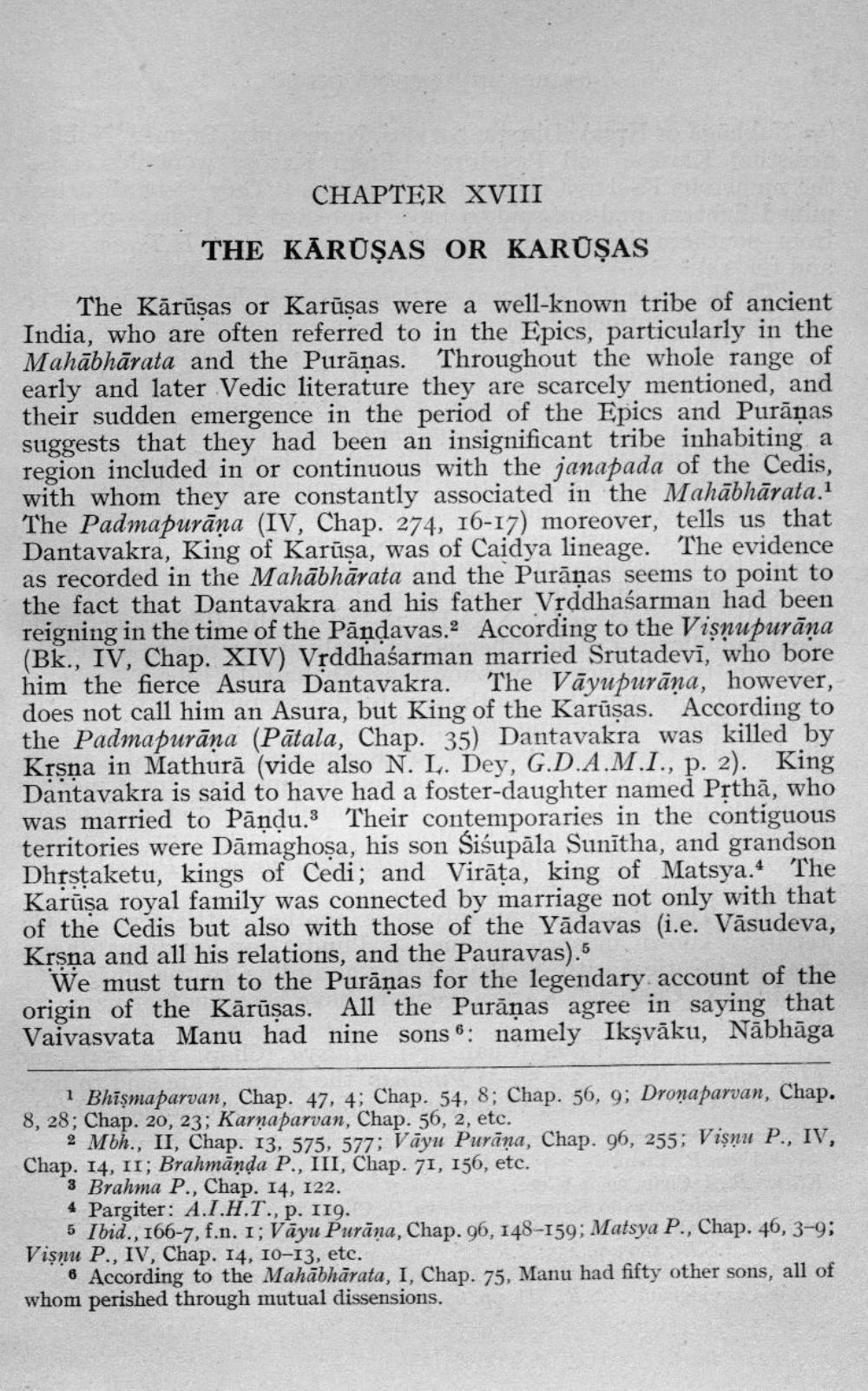________________
CHAPTER XVIII
THE KĀRUŞAS OR KARUŞAS
The Kārūsas or Karūsas were a well-known tribe of ancient India, who are often referred to in the Epics, particularly in the Mahābhārata and the Purāņas. Throughout the whole range of early and later Vedic literature they are scarcely mentioned, and their sudden emergence in the period of the Epics and Purānas suggests that they had been an insignificant tribe inhabiting a region included in or continuous with the janapada of the Cedis, with whom they are constantly associated in the Mahābhārata.1 The Padmapurāņa (IV, Chap. 274, 16-17) moreover, tells us that Dantavakra, King of Karūsa, was of Caidya lineage. The evidence
orded in the Mahābhārata and the Purānas seems to point to the fact that Dantavakra and his father Vrddhaśarman had been reigning in the time of the Pāņdavas.2 According to the Vişnupurāņa (Bk., IV, Chap. XIV) Vrddhasarman married Srutadevī, who bore him the fierce Asura Dantavakra. The Vāyupurāna, however, does not call him an Asura, but King of the Karūsas. According to the Padmapurāna (Pātala, Chap. 35) Dantavakra was killed by Krsna in Mathurā (vide also N. L. Dey, G.D.A.M.I., p. 2). King Dantavakra is said to have had a foster-daughter named Prthā, who was married to Pāņdu.3 Their contemporaries in the contiguous territories were Dāmaghoşa, his son Siśupāla Sunitha, and grandson Dhrstaketu, kings of Cedi; and Virāta, king of Matsya. The Karūsa royal family was connected by marriage not only with that of the Cedis but also with those of the Yādavas (i.e. Vāsudeva, Krsna and all his relations, and the Pauravas).5
We must turn to the Purānas for the legendary account of the origin of the Kārūsas. All the Purāņas agree in saying that Vaivasvata Manu had nine sons 6: namely Iksvāku, Nabhaga
1 Bhīşmaparvan, Chap. 47, 4; Chap. 54, 8; Chap. 56, 9; Dronaparvan, Chap. 8, 28; Chap. 20, 23; Karnaparvan, Chap. 56, 2, etc.
2 Mbh., II, Chap. 13, 575, 577; Vāyu Purāna, Chap. 96, 255; Vişnu P., IV, Chap. 14, 11; Brahmānda P., III, Chap. 71, 156, etc.
3 Brahma P., Chap. 14, 122. 4 Pargiter: A.I.H.T., p. 119.
5 Ibid., 166-7, f.n. 1; Vāyu Purāna, Chap. 96, 148-159; Matsya P., Chap. 46, 3-9; Visnu P., IV, Chap. 14, 10-13, ete.
8 According to the Mahābhārata, I, Chap. 75, Manu had fifty other sons, all of whom perished through mutual dissensions.




